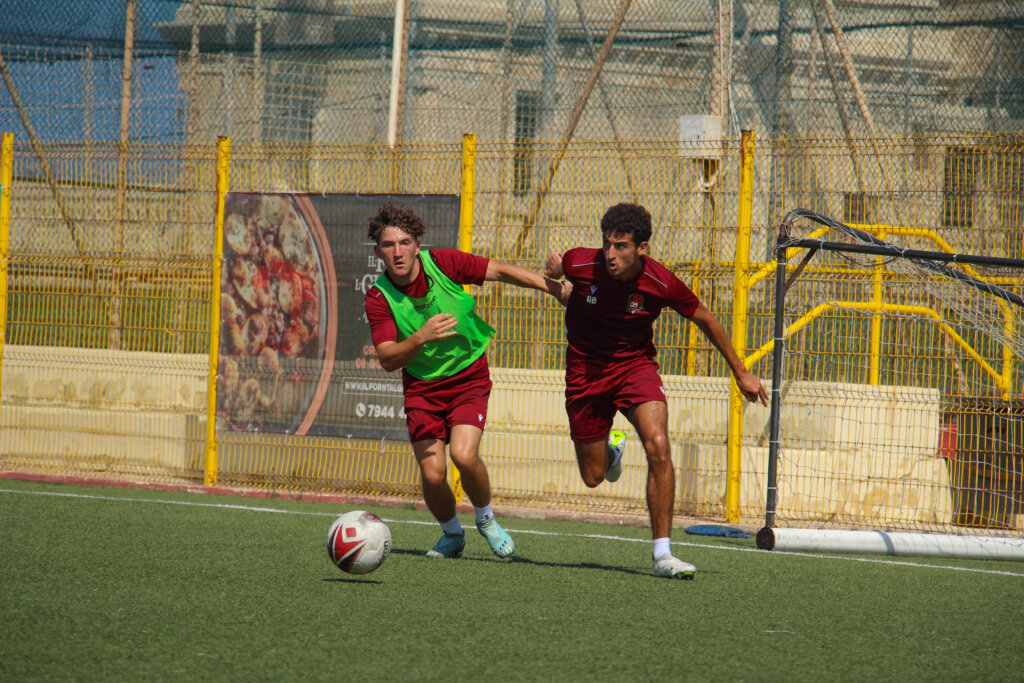Football trials represent crucial opportunities for young talents who wish to get noticed and progress in their sporting careers.
For many players, succeeding in a football trial can mean gaining entry into a recognised club, a reputable training centre, or a renowned academy.
However, the high stakes of these football trials can lead to mistakes that harm a player’s performance, even if they are highly talented.
The purpose of this article is to inform young footballers about the common mistakes to avoid, to maximise their chances of success.
Summary
Understanding the importance of football trials
It’s important to remember that taking part in a football trial isn’t just about showcasing your technical skills.
It's also a question of mentality, of physical preparation, and ability to stand out under pressure. These football trials are a unique opportunity to prove your worth to scouts.
By understanding expectations and preparing properly, players can optimise their performance.
Error No. 1 Mental preparation : Neglecting mental preparation
Mental preparation is just as crucial as physical preparation.
Many players focus solely on their technical skills, neglecting the impact of stress and mental pressure on their level of play.
A positive and resilient mindset is essential to perform under pressure. Recruiters are looking for players able to remain calm and concentrated, even in tense situations.
Professional coaches often stress the importance of the positive visualisation and intrinsic motivation.
For example, David Beckham has often talked about his use of visualisation to prepare for matches. Players also need to condition themselves to believe in their abilitiesThis often translates into a more confident and deliberate performance on the pitch.
To reinforce their mental preparation, players can incorporate relaxation and concentration exercises into their daily routine.
This can include meditation, the deep breath, and the practice of full awareness. These techniques help to reduce anxiety and improve concentration.
Error No. 2 : Lack of physical fitness
Another common mistake is to underestimate the importance of physical fitness. A player may have exceptional technical skills but may fail to impress scouts if he lacks stamina or strength.
Football is a demanding sport that requires a high level of excellent physical condition to excel.
Scouts closely observe a player’s ability to maintain a high level of performance throughout the football trial.
This includes quick sprints, abrupt changes of direction, and playing efficiently even at the end of the game.
A good fitness programme, including cardiovascular endurance, muscular strength and flexibility, is essential.
To improve their physical condition, players need to adopt a balanced training plan. This could include regular running sessions, strength training and stretching routines.
A suitable diet, rich in proteins and essential nutrients, will also support their physical efforts.

Error No. 3 : No game tactics
Another common pitfall is the lack of appropriate playing tactics. The scouts present at a football scouting event assess not only individual abilities but also a player's ability to contribute to a team of strategic way.
Understanding and applying game tactics is crucial.
Players must be able to read the game and adapt their actions to support the team. This includes making quick decisions, anticipating opponents' moves and communicating effectively with team-mates.
A player with no apparent tactics may appear disorganised and impulsive.
Players can practise developing their strategic skills by analyst professional matches, in student various training courses, and by simulating game scenarios during training sessions.
Working with a coach on these aspects can also offer valuable insights.
Error No. 4 : Ignoring the collective game
Another significant error is neglect the importance of team play. Football is first and foremost a team sport, and players must demonstrate their ability to work with others.
Recruiters are looking for players who can fit harmoniously into a team.
It's important for players to show that they can both playing solo and contributing to collective success. This means working on passing, movement without the ball and defensive support.
A player who locks himself into his own game can give the impression of being individualistic and inflexible.
Players should take part in group exercises that focus on communication and cooperation.
Playing regularly for local teams or taking part in friendly matches can help develop these essential skills.
Error No. 5 : Adopting a negative attitude
Finally, adopting a negative or nonchalant attitude can ruin a promising performance. Recruiters are sensitive to attitudes, looking for players who show drive and determination,enthusiasm,the respectand determination.
A bad attitude can be a decisive factor, even for technically talented players.
Players must remember that their behaviour off the ball is just as important. This means showing fair play, respecting referees' decisions and encouraging team-mates.
A professional and positive attitude is often what sets a player apart from others.
To cultivate a positive attitude, players can focus on their past successes and use them to sources of motivation.
Taking part in personal development workshops and receiving constructive feedback can also strengthen their mental approach to the game.
Conclusion
In conclusion, football trials are crucial steps for young players aspiring to progress in the professional game.
Avoiding common mistakes such as neglect of mental preparation, lack of fitness, lack of strategy, ignorance of the collective game, and adopting a negative attitude can turn a young talent into a must-have for recruiters.
By preparing thoroughly and adopting a positive mentality, players can maximise their chances of success.
Preparation is the key to success, and every player should strive to get the most out of their football trials. Don’t hesitate to read our other blog posts full of tips on how to improve your football and give yourself the best chance of success.

